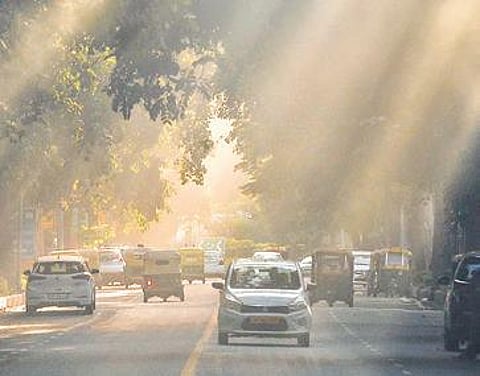

NEW DELHI: The number of days with severe concentration of PM 2.5 levels --- the most prominent pollutant and the major spike seen during winter --- have declined and the duration of smog episodes are shorter. This winter Delhi-NCR may see a much severe peak in smog, as farm stubble fire counts may get more concentrated due to the delayed effect of the rains, a pre-winter air quality trends analysis released by the Centre for Science and Environment (CSE) said.
The analysis is of annual and seasonal trends in PM2.5 concentration for the period between January 1, 2018 and October 15 2021. The assessment captures three successive winter seasons, pre-winter trends and the pre-pandemic and pandemic era periods, including stages of lockdown. It is based on real-time data available from the currently operational air quality monitoring stations in Delhi-NCR and the larger Indo-Gangetic Plains (IGP).
“The number of days with severe concentration of PM2.5 has declined and duration of smog episodes are shorter, as is evident during the 2020-21 winter. Moreover, pollution hotspots are showing more volatile trends with some recording higher PM2.5 levels compared to the city as a whole and the regional averages even during monsoons,” said Avikal Somvanshi, programme manager at the Urban Data Analytic Lab, CSE.
During the winter of 2020-21, for 23 days the city had a wide average of PM2.5 concentration in ‘severe’ or ‘worse’ AQI sub-categories -- down from 25 such days in 2019-20 winters. Technically, a smog episode is defined for the purpose of implementing emergency action under the Graded Response Action Plan (GRAP) when the levels of PM2.5 remain in ‘severe’ category for three consecutive days.
It further showed that given the experience of 2019-20, it can be expected that smog episode this year might have higher peak pollution, if special steps are not taken to reduce pollution from sources. Executive director at CSE Anumita Roychowdhury, said that given the trends, Delhi will require urgent action to prevent severe smog episodes as well as speed up deeper reforms to sustain the gains. “These include reduction in traffic volume, eliminate waste burning, implement stringent dust control measures,” she said.